
|
|
Links: Home U.S. Delegation U.S. Sponsors U.S. Paper U.S. Poster Dissemination Proceedings Conference Photos 5th Conference 4th Conference 3rd Conference 2nd Conference 1st Conference Related Resources Contact Us |
| ||||||||||||||||||||||||||||||||||||||||||||||||||
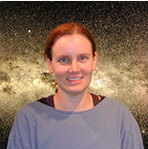 Kim Coble Chicago State University kcoble@csu.edu
|
Kim Coble is an associate professor of physics at Chicago State University (a minority-serving institution on Chicago's South Side), with interests in cosmology, education research, and improving physics and astronomy education for underrepresented students. She serves as Chicago State's director for the Illinois Space Grant Consortium, was the winner of a Faculty Excellence Award in 2008, and has mentored seventeen students and seven junior faculty. After obtaining her B.A. in physics and astronomy from the University of Pennsylvania and Ph.D. in astrophysics from the University of Chicago in 1999, Coble worked as a post-doctoral researcher and lecturer at the University of California at Santa Barbara until 2001. From 2001 – 2004 Coble was a National Science Foundation Astronomy and Astrophysics Fellow, with a joint appointment at the University of Chicago and the Adler Planetarium, carrying out a program of research and education in cosmology. She has authored or co-authored over thirty journal articles and conference proceedings on topics of interest to the cosmological research community, such as observations of the Cosmic Microwave Background (BOOMERANG, PYTHON, MSAM, etc.), galaxy clusters (SZE), and dark energy. However, recognizing the incredible dearth of research on student learning in cosmology, she has switched her focus to cosmology education research. Along with collaborators, she is conducting research on student understanding of the structure, composition, and evolution of the universe and creating a series of interactive web-based cosmology learning modules. She is strongly committed to ensuring the representation of women and minority students in these endeavors.
|
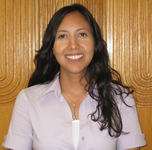 Cynthia Correa University of Texas Austin correa@physics.utexas.edu
|
Cynthia Correa is a PhD student at the University of Texas at Austin in plasma physics. She completed a degree in physics at Harvard University in 2004. Her current work consists of analytical and computational studies of wave dynamics in plasmas related to heating of the solar corona and magnetic reconnection. Before beginning graduate school, she participated in several activities geared towards the advancement of minorities in higher education and particularly in the sciences. At UT Austin, she is on her third term as a member of the Graduate Welfare Committee, an elected group that serves as a liaison between the physics department and the graduate student body; tackling matters such as curriculum shortcomings and selection of colloquium speakers as well as aiding in recruitment and organizing social events. She has also aided as a mentor and a recruiter for a summer research internship program for high school girls and founded the Women in Physics group. Recent events have focused on discussing UT Austin’s child birth policy for graduate students, raising awareness within the department about the underrepresentation and attrition of women in physics and providing networking activities for the women in the department.
|
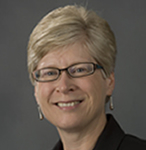 Beth Cunningham American Association of Physics Teachers bcunningham@aapt.org
|
Beth joined the American Association of Physics Teachers as the Executive Officer on January 1, 2011. She earned a Bachelor of Science degree, a Master of Arts degree, and a Doctor of Philosophy from Kent State University. After receiving her doctorate, Beth was a post doctoral fellow at the Hormel Institute at the University of Minnesota and she taught for one year in the physics department at Gettysburg College immediately following her post doctoral fellowship. In 1989 she joined the physics department at Bucknell University as an assistant professor and progressed through faculty ranks to full professor in 2002. In 2000 she was named associate dean of the faculty in the College of Arts and Sciences. She developed and administered the Bucknell Physics Department Summer Undergraduate Research Program and this program received funding from the National Science Foundation for over 12 years. In 2006, she was appointed as Provost, Dean of the Faculty, and Professor of Physics at Illinois Wesleyan University. At Illinois Wesleyan University, Beth initiated a strategic curricular review to enhancing academic programs and external reviews of academic departments. She also developed a child bearing and childrearing policy for faculty and staff. At AAPT, Beth is providing leadership on a number of physics education initiatives including the collaboration with the American Physical Society on the PhysTEC project, a major initiative to increase the number and quality of high school physics teachers, the development of a e-Mentoring program for new high school physics teachers, the PTRA program, and a new program on “Mobilizing Disciplinary Societies on Behalf of our Students … and our Planet” with Project Kaleidoscope. Beth has been active in educational and professional organizations at the national level such as chairing the Committee on Education for the American Physical Society in 2004. She has also taught a variety of courses, including seminars for first year students and advanced physics courses. She was co-principal investigator on a National Science Foundation grant recently awarded to Project Kaleidoscope to prepare faculty leaders in science, technology, engineering, and mathematics. She continues to serve as a Councilor in the Physics and Astronomy Division of the Council on Undergraduate Research. Beth's research interests include the structure and function of phospholipid membranes and physics education research.
|
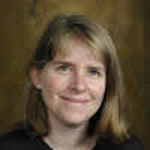 Melissa Dancy University of Colorado melissa.dancy@colorado.edu
|
|
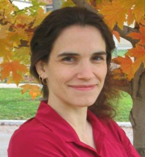 Elizabeth Freeland University of Illinois Urbana-Champaign edf@illinois.edu
|
Elizabeth Freeland actively juggles her interests in flexible career paths, high-energy physics, teaching and, of course, her family. Currently, she is a postdoctoral researcher at University of Illinois Urbana-Champaign, where her research focuses on weak-interaction phenomenology. As a member of the Fermilab-MILC collaboration, she calculates non-perturbative, Standard Model quantities needed for new-physics searches in flavor physics. Prior to this position, she was the recipient of the American Fellowship from the American Association of University Women, and the Blewett Scholarship from the American Physical Society. Both awards helped her return to physics after a break, and transition from condensed matter theory, her Ph.D. field, to high-energy theory. Elizabeth has given a number of invited talks on career breaks, most recently at the Women in Astronomy 2009 conference and the NPA’s Summit on Gender and the Postdoctorate, in March 2010. During her return to physics, she had a wonderful time teaching physics to fine arts students at The School of the Art Institute of Chicago. In fall of 2011, she will be starting a tenure-track position at Benedictine University, near Chicago. Elizabeth feels that this journey has been undertaken by her entire family, including her physicist husband, two children, and even her mom. When they have free time, her family likes to read books, watch movies together, and go hiking.
|
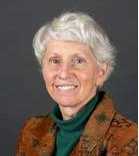 Beverly K. Hartline University of District of Columbia bhartline@udc.edu
|
Dr. Beverly Karplus Hartline is Associate Provost for Research, Dean of Graduate Studies, and Acting Dean of Engineering and Applied Sciences at the University of the District of Columbia. Previously she has held teaching, research and leadership positions in universities, in several Department of Energy laboratories, at NASA, and worked in policy at the White House Office of Science and Technology Policy. From 1985 through 1996 she was a member of the leadership team that built Jefferson Lab—a world-class superconducting accelerator for nuclear physics research located in Virginia. As Associate Director for Project Management she was responsible for ensuring completion of the project within cost, on schedule, and achieving the performance goals. A passionate educator enthusiastic about attracting students to science and engineering, she organized and led JLab’s first education/outreach programs—focused especially on broadening participation to include more women and minorities. She is a charter member of the International Working Group on Women in Physics of the International Union of Pure and Applied Physics, and has helped to organize its four conferences: Paris 2002, Rio de Janeiro 2005, Seoul 2008, and now Stellenbosch 2011. Her Ph.D. is in geophysics from the University of Washington, and she has a bachelor’s degree in chemistry and physics from Reed College. She and her husband, Fred, enjoy backpacking and bicycling, and they have two grown sons (both computer scientists), five chickens, a cat, and a self-designed and installed extensively instrumented 3,600 Watt home photovoltaic system.
|
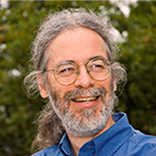 Ted Hodapp American Physical Society hodapp@aps.org
|
Dr. Theodore Hodapp is the Director of Education and Diversity for the American Physical Society (APS) in College Park, Maryland. The American Physical Society is the largest professional society representing physicists in the United States, publishing the most significant international journals in physics, and facilitating programs to represent physicists and their interests. The APS Department of Education and Diversity (www.aps.org/programs) runs programs that advocate issues relevant to minorities and women, and in areas of education and careers. Ted is also Principal Investigator of a large NSF and APS-funded national effort, the Physics Teacher Education Coalition (www.PhysTEC.org), which seeks to improve the quality and quantity of physics and physical science K-12 teachers. Before coming to the APS, Dr. Hodapp served as Program Director in the National Science Foundation’s Division of Undergraduate Education, working with programs in curriculum development and implementation, teacher preparation, scholarships, and the National Science Digital Library (he is currently co-PI on the ComPADRE digital library project, www.compadre.org, that collects physics education materials). Prior to coming to the NSF, Ted was professor and chair of the Hamline University Physics Department in St. Paul, Minnesota. He recently served as chair of the Physics and Astronomy Division of the Council on Undergraduate Research (www.cur.org), is a Fellow of the American Physical Society, and is currently serving on the National Research Council Committee on Undergraduate Physics Education Research and Implementation. His research interests include laser cooling, optical modeling, and physics education research.
|
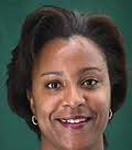 Apriel Hodari CNA hodaria@cna.org
|
Apriel K. Hodari is an expert in physics education research, STEM educational equity and workforce diversity, particularly in physics and astronomy. Apriel is currently working for CNA, a think tank in the Washington, DC, area. She received her BS from Purdue University and MS and PhD from Hampton University. She was a postdoctoral fellow in the area of physics education research at the University of Maryland. She was co-leader for the U.S. Delegation to the Second International Union of Pure and Applied Physics Conference on Women in Physics in Rio de Janeiro, Brazil. She was a Congressional Science Fellow in the Office of Congresswoman Cynthia McKinney during 2000-2001. She is co-principal investigator for the project “Beyond the Double Bind: Women of Color in Science, Technology, Engineering and Mathematics.” She is also a consultant for the project “Inside the Double Bind: A Synthesis of Literature on Women of Color in Science, Technology, Engineering and Mathematics.” Finally, she is currently a member of the Committee on the Status of Women in Physics, The American Physical Society.
|
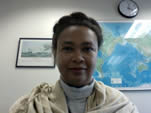 Jarita Holbrook University of Arizona holbrook@u.arizona.edu
|
Jarita Holbrook has earned a B.S. degree in physics from the California Institute of Technology, a master's in astronomy from San Diego State University (1992), and a doctorate (1997) in astronomy& astrophysics from the University of California, Santa Cruz. She was a Peace Corps Volunteer in the Fiji Islands and worked at NASA Goddard Space Flight Center on HST images in 1993. She was a postdoc at the Max Planck Institute for the History of Astronomy in Berlin, and at the Center for the Cultural Studies of Science, Technology, and Medicine at UCLA. She is currently a visiting professor in Women's Studies at the University of California, Los Angeles. Holbrook is a cultural astronomer and activist. Her research takes her around the world studying indigenous astronomy, helping with the UNESCO Astronomy & World Heritage preservation initiative, encouraging the new generation of astronomers, and building the field of cultural astronomy. Jarita Holbrook is the executive producer of the documentary film Hubble's Diverse Universe. The film features six African American and three Hispanic American astrophysicists and it is designed to inspire students to consider STEM fields. Holbrook who is the fourth African American woman to earn a Ph.D. in astrophysics in the USA appears in the film. She has been working with the American Physical Society on the Gender Equity Conversation Project and is the past president of the Association of Women Faculty at the University of Arizona. Her NSF funded research focuses on an oral history of women and minority astrophysicists involved in the Large Synoptic Survey Telescope (LSST). She is writing a book on the National Astrophysics and Space Sciences Programme (NASSP) in South Africa. The combination of doing research on people along with the focus on the sky she feels perfectly suits her skills and her career aspirations. Jarita Holbrook is married and has two daughters. She enjoys travel and new cuisine. She takes dance classes and is writing a science fiction series in her spare time. Her favorite way to waste time is to go to an afternoon matinee, however with Hubble's Diverse Universe under her belt, even viewing films for pleasure is work!
|
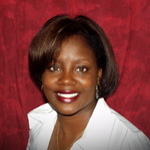 K. Renee Horton University of Alabama rhorton@mint.ua.edu
|
K. Renee Horton, one of the U.S. Delegation Co-Leaders, is a doctoral candidate in Material Science with a concentration in Physics. She is currently performing her dissertation research on graded recorded media at the Center for Materials Information Technology located at the University of Alabama and will be the first African American to graduate with a PhD in Material Science. She is currently a graduate teacher assistant teaching studio physics 101 and 105. Ms. Horton was a NASA Goddard Space Flight Center Graduate Student Research Fellow (2004-2007) and a Southern Regional Educational Board Fellow (2005-2008). She is a student executive board member and chairperson for the women in physics committee for the National Society of Black Physicists (NSBP), the Alabama and Georgia Science and Everyday Experience (SEE) coordinator for Delta Sigma Theta Sorority, Inc. She established and is currently the scientific outreach coordinator for the MINT Scientific Outreach Program (MINT SOUP). The program services 125 students in the city and county of Tuscaloosa. She was awarded the American Physical Society Topical Group on Magnetism and its Applications (GMAG) outreach grant in 2007. She was a member of the U.S. delegation team to the 2nd International Union of Pure and Applied Physics (IUPAP) International Conference on Women in Physics in 2005, held in Brazil. She is currently serving as Co-leader for the upcoming US delegation team for the 3rd IUPAP International Conference on Women in Physics in October 2008, to be held in Korea. She has been an invited speaker at the NSBP annual conference and at the American Physical Society (APS) annual March meeting. Ms Horton is the proud mother of three children, Eric 17, Malik 15 and Denise 9. Her greatest accomplishment outside of her family is her success in achieving her goals in spite of her hearing disability.
|
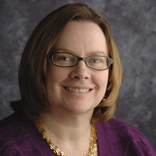 Rachel Ivie American Institute of Physics rivie@aip.org
|
Rachel Ivie is Assistant Director of the Statistical Research Center (SRC) at the American Institute of Physics. She received her PhD in sociology from the University of North Carolina at Chapel Hill, where she specialized in research methods, statistics, gender, and the life course. Before coming to the SRC, Dr. Ivie was a professor of sociology and taught various courses to undergraduates, including the sociology of gender and research methods. Over the past ten years at SRC, she has specialized in studies of the workforce and diversity in physics. Dr. Ivie has been involved in several U.S. and international efforts to increase women’s presence in physics. Dr. Ivie provides social science expertise in the collection, analysis, and reporting of data—both quantitative and qualitative—about women and minorities in the fields of physics and astronomy.
|
 Ivy Krystal Jones Hampton University ivykrystal@gmail.com
|
Ivy Krystal Jones is a second year physics doctoral student at Hampton University with a concentration in optics and specializing in solid-state spectroscopy. Her research currently involves the synthesis and spectroscopic studies of rare-earth doped solid-state laser crystal material development. Her current dissertation research topic includes both the material development and spectroscopic analysis of rare-earth doped binary and ternary halide laser crystals for “eye-safe”, optical communication, and anti-bioterrorism laser applications. Her research is inter-disciplinary using material science and engineering techniques for the laser crystal fabrication and optical physics applications for the spectroscopic studies. In 2009 she completed her Master of Science degree in Physics from Hampton University, for her thesis she worked to develop diffusion transitional-metal doped commercially available polycrystalline II-VI semiconductor window material via post-growth thermal vapor experiments for broadband mid-infrared laser application such as analytical spectroscopic techniques, medical treatment procedures, atmospheric remote-sensing applications, etc …
|
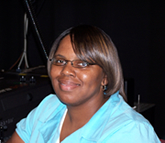 Elaine Lalanne University of Maryland Baltimore County elalanne@umbc.edu
|
Elaine Lalanne received a BA in Physics from Wellesley College in 1994 and a PhD from the joint department of Applied Physics from New Jersey Institute of Technology/ Rutgers University-Newark in May 2003. Her PhD dissertation focused on investigating the ultrafast photophysics and nonlinear optical properties of silicon nanostructured materials and single-walled carbon nanotubes. She is currently a Research Scientist at the Center for Advanced Studies in Photonics Research (CASPR) at UMBC. At UMBC, her work involves studying the nonlinear optical properties of bulk, nanoclustered, and quantum well semiconductor structures. Her current project is developing an integrated laboratory Mid-IR ultrafast diagnostic instrument. She is a member of Optical Society of America (OSA), American Physical Society (APS) and National Society of Black Physicists (NSBP).
|
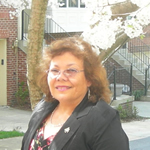 Luz J. Martínez-Miranda University of Maryland ljmm@end.umd.edu
|
Dr. Luz J. Martínez-Miranda finished her bachelor’s and mater’s degree in Physics at the University of Puerto Rico, Río Piedras campus, her bachelor’s in Music Performance from the Conservatory of Music of Puerto Rico and her PhD. Degree in Physics from the Massachusetts Institute of Technology, in Cambridge, MA. Her main field of research involves all aspects of the properties and characterization of liquid crystal materials, from the purely physical point of view to the engineering applications and biological aspects of this field. She currently studies the effects of mixing nanoparticles with liquid crystals, particularly the ordered phases of the liquid crystals. She is interested in biological applications and on photovoltaic applications of mixing liquid crystals and nanoparticles. She was a Visiting Professor at the Physics Department and the Liquid Crystal Institute at Kent State University at Kent, Ohio and at the Centre de Recherce Paul Pascal, CNRS, at Bordeaux, France. She is an associate professor at the University of Maryland, College Park, MD in the Department of Materials Science and Engineering. She is a fellow of both the American Association for the Advancement of Science (AAAS) and the American Physical Society (APS). Dr. Martínez-Miranda has been a member of the APS Committee on Minorities and a member and chair of the Committee on the Status of Women in Physics, and has served as a member of the Board of the National Society of Hispanic Physicists since 1997 and the society’s president from 2002-2005 and past president 2005 - 2007. Currently she is the society’s president again. As part of the NSHP she has been involved in the Society for the advancement of Chicanos and Native Americans in Science (SACNAS) meeting since 1998, and was a member to the society’s board from 2005-08. At the University of Maryland she has been active in outreach activities which involve not only students of Physics, but of Chemistry and Materials Science. She was the director of the NSF-REU for the Materials Science and Engineering Center at the University of Maryland from 1997-2010. Internationally, she was one of the organizers of a NSF-PASI meeting on Nano-Bio that reached out at mostly graduate students from the Americas. All four of the organizers, 58% of the presenters, and 46% of the participants were women.
|
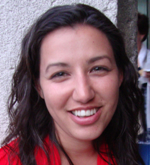 Rhiannon Meharchand Michigan State University meharcha@nscl.msu.edu
|
Rhiannon Meharchand received her Bachelors of Science degree in Physics from The Florida State University in 2006, and is currently finishing a doctoral program in Physics at Michigan State University. Her research interests include experimental nuclear physics, and her thesis project involves studying the structure of light nuclei using charge-exchange reactions run in inverse kinematics at the National Superconducting Cyclotron Laboratory. She has been actively involved in diversity issues throughout her graduate career, co-founding Women and Minorities in the Physical Sciences (WaMPS), an all-inclusive student organization committed to supporting and promoting underrepresented groups in science. She also serves on several university and laboratory diversity boards. Most recently, on behalf of WaMPS she authored a “Best Practices” report on recruiting and retaining underrepresented minority graduate students, suggestions from which are currently being evaluated for implementation. In 2010, Rhiannon was recognized for her graduate work and service activities by the Association for Women in Science, who awarded her the Luise-Meyer Schutzmeister Memorial Award. Her outside interests involve cooking, eating and travel, and she is honored and excited to be a member of the U.S. Delegation for the 4th IUPAP ICWIP.
|
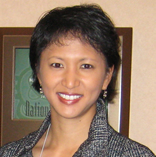 Mia Ong Tech. Ed. Res. Centers ong.mia@gmail.com
|
Maria (Mia) Ong is a Principal Investigator and Evaluator in the Education Research Collaborative at TERC, a science and mathematics education non-profit in Cambridge, Massachusetts, USA. She also directs Project SEED (Science and Engineering Equity and Diversity), a social justice collaborative affiliated with The Civil Rights Project/Proyecto Derechos Civiles at UCLA. Dr. Ong earned a Ph.D. in Social and Cultural Studies in Education from the University of California at Berkeley and held postdoctoral/lectureship positions at Wellesley College and Harvard University. She conducts qualitative research focusing on gender and race in science, technology, engineering, and mathematics in higher education and careers. She is currently co-conducting a National Science Foundation-sponsored study with Dr. Apriel Hodari that analyzes life stories of racial/ethnic minority women in physics, astronomy, engineering, and computer science. Dr. Ong’s work has appeared in journals such as Interactions Across Physics and Education and Social Problems. Between 1996 and 2000, she directed an undergraduate physics program for minority and female students at U.C. Berkeley; for this work, she was a co-recipient of a U.S. Presidential Award for Excellence in Science, Mathematics, and Engineering Mentoring. In 2005, she served on the U.S. delegation to the 2nd IUPAP International Conference on Women in Physics in Brazil. Since 2008, Dr. Ong has served as a member of the Committee on Equal Opportunities in Science and Engineering (CEOSE), a Congressionally mandated advisory committee to the National Science Foundation.
|
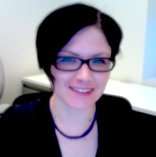 Sara Petty UCLA spetty@astro.ucla.edu
|
Dr. Sara Petty is currently a Postdoctoral Scholar at University of California, Los Angeles Astronomy and Physics department. She is an observational cosmologist working with the Wide field Infrared Survey Explorer (WISE) mission to study the nature of the Universe's largest and most luminous galaxies. She obtained her PhD (2010) in Physics at the Catholic University of America in Washington, DC, and conducted her thesis research at NASA's Goddard Space Flight Center on the evolution of galaxies. In 2003, she taught high school physics in Baltimore, MD as part of the Teach For America program before attending graduate school. She is particularly concerned with improving the number of inner city minorities who persue a degree in physics and matriculate on to postgraduate studies in the STEM (Science Technology Engineering and mathematics) subjects.
|
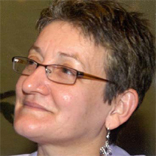 Idalia Ramos University of Puerto Rico at Humacao iramos@mate.uprh.edu
|
Idalia Ramos is a Professor of Physics and Electronics at the University of Puerto Rico at Humacao (UPRH). Her current research efforts focus on the area of materials for devices, including sensors and actuators. UPRH is an undergraduate institution populated by the scientifically underserved rural Puerto Rico habitants. Professor Ramos’s research is run by undergraduates and high school students, most of whom are women. Over the years she has implemented various efforts to promote female students and faculty in science, mostly in the physical sciences. She has been the advisor of UPRH’s Feminist Laboratory, a group of women science students founded in 2000. Ramos was the Principal Investigator of the NSF ADVANCE Institutional Transformation grant awarded to UPRH in 2001 to recruit, retain, and promote women in the science faculty. She has been a member of UPRH´s Committee on the Status of Women and the Coordinating Committee of the Program to Prevent the Violence against Women on Campus. Prof. Ramos is the Principal Investigator and Director of the NSF PENN-UPR Partnership for Research and Education in Materials, a collaborative program between the University of Pennsylvania and the University of Puerto Rico at Humacaco. PREM has increased the participation of women in science by providing early research experiences, mentoring and role models. Currently, seventy five percent of PREM undergraduate researchers are women. Of these, fifty percent are women in physics.
|
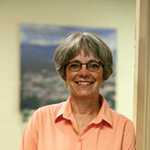 Susan Seestrom Los Alamos National Lab seestrom@lanl.gov
|
Susan Seestrom has been Associate Laboratory Director for Experimental Physical Sciences at Los Alamos National Laboratory since 2006, and was Associate Laboratory Director for Weapons Physics from 2004 through 2006. Prior to that she has held various management and research positions at Los Alamos. Dr. Seestrom’s research in nuclear physics ranges from studies of nuclear structure with medium energy probes to studies of the weak interaction using neutrons. Most recently, Dr. Seestrom led efforts to develop a source of ultra-cold neutrons (UCN) at Los Alamos. This work culminated in a worldleading UCN source at Los Alamos and the first measurement of the beta asymmetry in neutron decay using UCN. During her time at Los Alamos, Dr. Seestrom has also contributed to programmatic research and has developed an appreciation for the synergy between basic and applied research at a multiprogram, multi-capability national laboratory. Dr. Seestrom is the co-author of 137 referred publications with over 1800 career citations. She was named Fellow of the American Physical Society in 1994. She has been an active member of the American Physical Society, serving in various capacities, including: Executive Committee of the Division of Nuclear Physics (1993-1994); Nominating Committee of the DNP (1995-1996, Chair 1996); Program Committee of the DNP (1986-1987,1997-1998,2004 Vice Chair, 2005 Chair); Fellowship Committee of the DNP (1997-1998); General Councilor of the APS (1996-2000); Executive Board of the APS (1998-2000); Chair Committee on Meetings APS (1999) Nominating Committee of the APS (2002-2004, Chair in 2003); Chair, Chair-Elect, and Vice Chair of the Division of Nuclear Physics (2004-2007). Dr. Seestrom has served on the Physics Programs Policy Committee of the American Institute of Physics (2000-2003). She presently is serving as Chair of the Nuclear Science Advisory Committee for the Department of Energy and the National Science Foundation. In addition to her professional work, Dr. Seestrom is a strong supporter of math and science education and has served on the Board of Directors of the Los Alamos National Laboratory Foundation (2003-present, President 2009-present), a small non-profit dedicated to enhancing the vitality of Northern New Mexico by investing in education, learning, and community development.
|
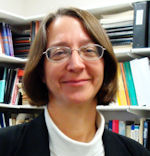 Sally Seidel University of New Mexico seidel@phys.unm.edu
|
Sally Seidel received her Ph.D. in experimental particle physics from the University of Michigan for a search for nucleon decay using the IMB water Cherenkov detector. As a postdoctoral fellow with the University of Toronto on the ARGUS Experiment, she participated in the construction of a drift chamber optimized for B physics and published a study of charmed baryon decay. Seidel joined the University of New Mexico faculty in 1991. She is a member of the CDF experiment at Fermilab, for which she co-led the upgrade tracker sensor design team and carried out a study of multi-jet final states, and the ATLAS experiment at the Large Hadron Collider, where she co-led the pixel sensor group. On ATLAS she is presently searching for excited heavy mesons and developing the technology for the upgrade pixel detector. A former Fulbright Senior Scholar, Seidel has held visiting appointments at Lund University, the Royal Institute of Technology in Stockholm, and the Institute of Physics of the Vietnam Academy of Sciences.
|
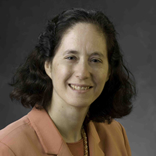 Elizabeth H. Simmons Michigan State University esimmons@msu.edu
|
Dr. Elizabeth H. Simmons is Professor of Physics in the Michigan State University Department of Physics and Astronomy and Dean of MSU’s Lyman Briggs College, (http://www.lymanbriggs.msu.edu/ ) a four-year residential undergraduate science college that focuses on the study of science in its historical, philosophical, and sociological context. Simmons is a particle theorist, whose research focuses on the origins of the masses of the elementary subatomic particles, especially the top quark. She is currently studying how physics beyond the Standard Model might manifest itself in experiments in progress at the Large Hadron Collider. She enjoys teaching physics courses at all levels, from introductory to graduate, and is presently teaching mathematical physics to juniors. Part of her mission as an educator is to encourage students from groups under-represented in physics to consider studies and careers in the physical sciences. After completing her undergraduate degree in physics at Harvard University, Simmons earned an M.Phil. in physics at Cambridge University as a Churchill Scholar. She returned to Harvard for her doctoral degree and postdoctoral fellowship, and then spent a decade as a professor at Boston University before joining the MSU faculty in summer 2003. She is a Fellow and Outstanding Referee of the American Physical Society, a General Member of the Aspen Center for Physics, and Chair of the Board of Trustees of Summer Science Program, Inc. She won the ACE Michigan Network's Distinguished Woman in Higher Education Leadership Award in 2005 and served as a US Delegate to ICWIP 2008.
|
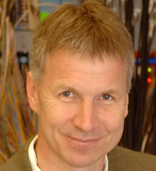 Michael Thoennessen Michigan State University thoennessen@nscl.msu.edu
|
Dr. Michael Thoennessen is Associate Director for Education at the National Superconducting Cyclotron Laboratory (NSCL) and a Professor of Physics in the Department of Physics and Astronomy at Michigan State University (MSU). He received his Ph.D. in experimental nuclear physics at the State University of New York at Stony Brook and spent two years as a research associate at Oak Ridge National Laboratory before joining the faculty at MSU. He performs his research with the Coupled Cyclotron Facility at the NSCL, a world leader in rare isotope research and education. His main research focuses on the study of extremely neutron-rich nuclei at the limit of nuclear existence. As Associate Director he guides and mentors over 70 undergraduate students, 70 graduate students and 30 postdoctoral researchers. He is a fellow of the American Physical Society, won the GENCO (GSI Exotic Beam Community) Award and the William Elgin Wickenden Award of the American Society for Engineering Education. He was the chair of the AAPT Committee on Graduate Education, was co-organizer of the 2008 AAPT/APS Conference on Graduate Education in Physics: Which Way Forward? and currently serves on the APS Committee on Education. Most recently he is a member of the visiting teams of the APS Committee on the Status of Women in Physics (CSWP) Gender Equity Conversation program.
|
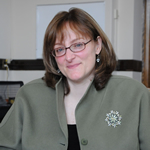 Meg Urry Yale University meg.urry@yale.edu
|
Meg Urry is the Israel Munson Professor of Physics and Astronomy at Yale University, Director of the Yale Center for Astronomy and Astrophysics, and Chair of the Physics Department at Yale. Professor Urry received her Ph.D. from the Johns Hopkins University in 1984 and her B.S. in Physics and Mathematics summa cum laude from Tufts University in 1977. Her scientific research focuses on active galaxies, which host accreting supermassive black holes in their centers. She has published over 190 refereed articles in scientific journals, on unification, host galaxies, relativistic jets, and the demographics of supermassive black holes. Her current interests include the interplay of black hole growth and star formation as galaxies form and evolve. Prof. Urry is a Fellow of the American Academy of Arts and Sciences, the American Physical Society and American Women in Science, and a recipient of the Annie Jump Cannon prize of the American Astronomical Society. Prior to moving to Yale in 2001, Prof. Urry was a senior scientist at the Space Telescope Science Institute, which runs the Hubble Space Telescope for NASA. Professor Urry is also known for her efforts to increase the number of women in the physical sciences, for which she won the 2010 Women in Space Science Award from the Adler Planetarium.
|
 Herman B. White Fermi National Accelerator, North Central College HWhite@fnal.gov
|
Herman B. White is a scientist at the Fermi National Accelerator Laboratory, currently one of the world’s highest energy particle physics laboratory, and an Adjunct Professor of Physics at North Central College in Naperville, Illinois. He completed undergraduate studies concentrating in physics at Earlham College, graduate studies in nuclear and accelerator physics at Michigan State University, and studies in high energy and particle physics at Yale University and Florida State University. He earned A.B., M.S., and Ph.D. degrees in physics. His recent research in particle physics involves rare Kaon decay measurements, Neutrino research, and Muon conversion experiments. Dr. White is a leader in supporting opportunities in the field of physics for students and scholars from the United States and many other parts of world, exemplified by his service in the American Physical Society International Physics Group, and past work on other American Physical Society Committees, the National Society of Black Physicists, and other organizations. For decades he has participated in the pioneering physics internship program at Fermilab for underrepresented science students, which began in 1971. This program has offered research experience for more than 650 selected students, and nearly half of this program were women science undergraduate students, in addtion to students at his College. Dr. White communicates with industry leaders, government officials, and the general public in the United States and internationally about science in the public interest. He currently serves on a number of national advisory boards and review committees, examining physics and areas of science in general, and is a member of several corporate boards.
|
|
|
|